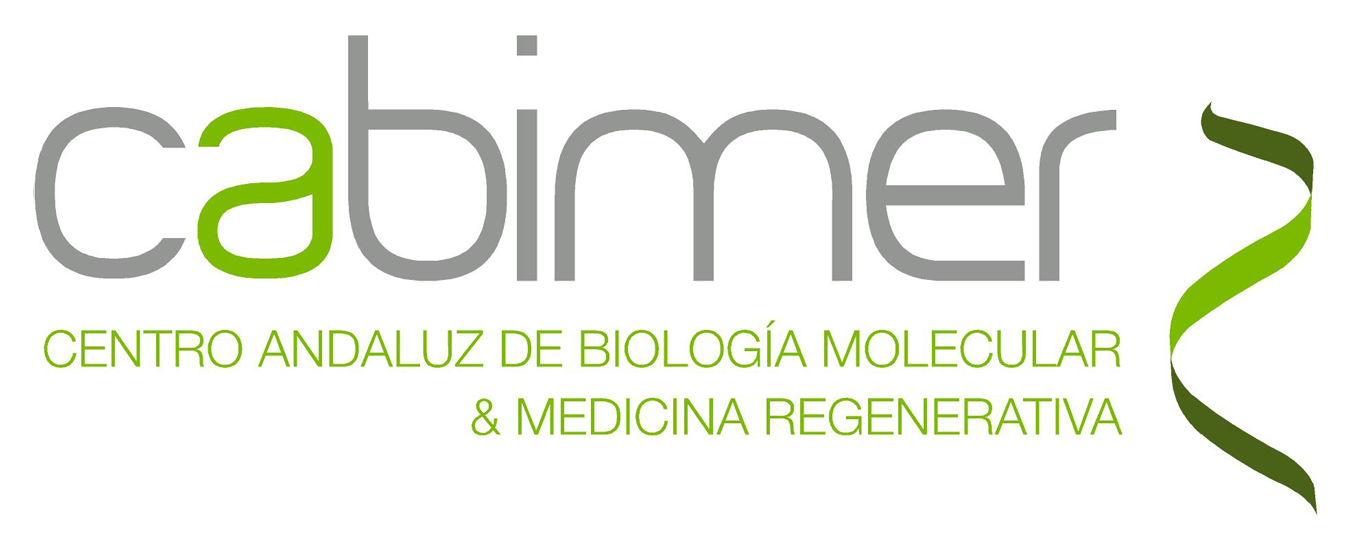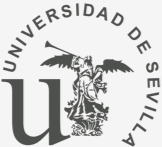Nutrition and Metabolic Diseases
Research Lines
Our main research line is to study the role of nutrients, foods and diets in the pathogenesis of diabetes, obesity, diabesity, metabolic syndrome and non-alcoholic fatty liver disease (NAFLD). Particularly we are involved in to understanding the mechanisms of actions by which hypercaloric high-fat and high-carbohydrate diets promote the onset of type 2 diabetes (T2DM) mellitus and NAFLD. We try to focus this issue from system physiology approach.
- Role of extra virgin olive oil (EVOO) in the prevention and treatment of metabolic diseases. One of the most important strategy for the prevention and treatment of metabolic diseases is lifestyle modifications, which are focused on an increase of physical activity and the intake of Mediterranean Diet. However, the Mediterranean diet generates a paradox, because it is rich in fats, but on the other hand, it has a protective effect. This suggests that not only the quantity of fats, we eat is important, but also their quality. A major component of Mediterranean diet is EVOO, a healthy food with high content of monounsaturated fatty acids, especially oleic acid, and variable concentrations of phenols. We think, that a large part of the importance of the Mediterranean diet lies in the EVOO intake. In this regard, We found, in mouse model of high fat diet (HFD)-induced obesity, type 2 diabetes (T2DM) and non-alcoholic fatty liver disease (NAFLD), that EVOO intake repaired HFD-induced hepatic damage via an anti-inflammatory effect in adipose tissue and modifications in the liver lipid composition and signaling pathways. Moreover, EVOO intake regulated glucose homeostasis, improving insulin sensitivity and pancreatic β-cell function. In addition, the intake of an EVOO much richer in phenolic compounds did not increase the beneficial effects of EVOO. In the case of female Ldlr-/-.Leiden mice with HFD-induced non-alcoholic steatohepatitis (NASH) with fibrosis, dyslipidemia and T2DM, we found that EVOO intake improved body weight, attenuated adipose tissue hypertrophy and inflammation, ameliorated insulin resistance and exerted anti-atherosclerotic effects. However, aggravated liver inflammation and fibrosis. The potential proposed mechanisms contributing to this EVOO effects are the upregulation of genes involved in liver inflammation, fibrosis and oxidative stress, as well as the downregulation of genes critical for liver lipid homeostasis. Finally, EVOO vasculoprotective effects are due to a modification in gene expression related with inflammation, a repression on monocyte/macrophage infiltration and a reduction of aortic peroxynitrites production. As it can be observed, there are still many different issues to be clarified, both in terms of biochemical and molecular activity of EVOO. Evidence from epidemiological studies and animal models suggest that intrauterine and perinatal nutritional status play a role in the predisposition of offsprings to metabolic diseases. Maternal HFD exposure may reprogram offspring development through epigenetic modifications and therefore contribute to metabolic diseases development. However, it is unknown what happens when using EVOO as the source of fatty acids and no relationship has been established between epigenetic modifications and the risk of developing metabolic diseases. Unpublished results from our group that EVOO intake, in mice mothers with obesity, T2DM and NASH, during pregnancy and lactation, protects the offspring from the appearance of these diseases, when the offspring are fed with saturated-HFD. This protection is dependent on the gender of the animals. Female offspring have greater protection against weight gain, fasting hyperglycemia and insulin resistance, dyslipidemia and systemic inflammation. In contrast, in male offspring protection was greater against liver damage in the form of steatosis and fibrosis. Thus, we want to test if these different forms of protection induced by EVOO, according to gender, are accompanied by specific changes in the expression of miRNAs in metabolic tissues (liver, pancreas and adipose tissue).
- Effects of plant-based foods bioactive compounds (carotenoids and phenolic compounds) on T2DM and NAFLD. Some preliminary data, of our group, in mice models of HFD-induced T2DM and NAFLD that persimmon bioactive compounds improved HFD-induced glucose homeostasis, IR, lipid profile, inflammatory status and liver fibrosis. Moreover, in patients diagnosed of IR and NAFLD, a nutritional 12 weeks, intervention with persimmon extracts improved fasted glycaemia, insulin resistance and transaminases. It is known, that gut dysbiosis play a role in the development of metabolic diseases. Therefore, we aim to identify if persimmon extracts modify human gut microbiota and to analyze the metabolites generated after human microbiota fermentation. In addition, we want to elucidate the potential mechanisms of action of identified human microbiota fractions.
- Nutritional geometry: a new approach to the management of metabolic diseases. Dietary habits impact on the pathophysiology, evolution and treatment of metabolic-associated liver diseases. It is now considered that food components interact at a high level of complexity to give rise to emergent properties of the diet, which are beyond the value that a particular nutrient and/or food could have. There is a mathematical model, nutritional geometry, that studies how nutrients and foods can be combined in a system that allows to know the interaction of foods to regulate the properties of diets that affect health. This mathematical model defines the relationships of the different nutritional hierarchies (nutrient, food, and diet) with aspects related to health. The analysis of the food/meal/diet consumption in NAFLD patients using nutritional geometry may allow us to understand the multiple dimension existing between nutritional aspects and NAFLD. This type of analysis would allow us to know the dietary/nutritional starting point of patients and to generate predictive models that allow us to design personalized diets for patients, to prevent and treat NAFLD. In addition, nutritional geometry allows is to situate in a two- or three-dimensional plane how the diets of NAFLD patients are placed with respect to the nutritional recommendations issued by international organizations. Once we have a patient’s diet on the plane, it is easier to identify where the problems are and to bring the diet back into line with the international recommendations. This approach allows us to make changes in the patient’s diet that do not have to be very drastic, and therefore would be easier to follow, than if the patient’s diet is completely changed. Finally, nutritional geometry can be used to dissect other nutritional dimensions, such as consumption of simple sugars, fatty acid profile or the role of certain amino acids, in metabolic liver diseases. Mapping and analyzing how people respond to the intakes of different types of diets can help us to define which diets may be more appropriate for different patients. In this regard, we have initiated a cross-sectional study with 40 adult obese patients with insulin resistance and NAFLD (histology diagnosis). At the moment, we have found that High levels of sugar, commercial bakery and red and/or processed foods consumption increased the worsening of NAFLD to NASH and fibrosis.
Current financial support
Ministry of Science and Innovation. Reference (PID2020-116731RB-C21).
Consejería de Transformación Económica, Industria, Conocimiento y Universidades (UPO-1380683).
Publications (last five years)
Jurado-Ruiz E, Varela LM, Berná G, Cahuana G, Martinez-Force E, Gallego-Durán R, Soria B, De Roos B, Romero-Gomez M, Martin F. Olive oil rich diet intervention ameliorates non-alcoholic steatohepatitis induced by high-fat “western type” diet in mice. Mol Food Nutr Res, 2017, 61. doi: 10.1002/mnfr.201600549.
Ortega A, Berná G, Rojas A, Martin F, Soria B. Gene-diet interactions in type 2 diabetes: the chicken and egg debate. Int J Mol Sci, 2017, 18. doi: 10.3390/ijms18061188.
Pertusa JAG, León-quinto T, Berná G, Tejedo JR, Hmadcha A, Bedoya FJ, Martín F, Soria B. Zn2+ chelation by serum albumin improves hexameric Zn2+-insulin dissociation into monomers after exocytosis. PloS One, 2017, 12, e0187547.
Escudero-Lopez B, Ortega A, Cerrillo I, Rodriguez Griñolo MR, Muñoz-Hernandez R, Macher HC, Martin F, Hornero-Mendez D, Mena P, Del Río D, Fernandez-Pachón MS. Consumption of orange fermented beverage improves antioxidant status and reduces peroxidation lipid and inflammatory markers in healthy humans. J Sci Food Agric, 2017, 98, 2777-2786.
Villamayor L, Rodríguez-Seguel E, Araujo R, Carrasco M, Bru-Tarí E, Mellado-Gil JM, Gauthier BR, Martinelli P, Quesada I, Soria B, Martín F, Cano DA, Rojas A. GATA6 controls insulin biosynthesis and secretion in adult ß cell. Diabetes, 2018, 67, 448-460.
Hornero-Méndez D, Cerrillo I, Ortega Á, Rodríguez-Griñolo MR, Escudero-López B, Martín F, Fernández-Pachón MS. β-Cryptoxanthin is more bioavailable in humans from fermented orange juice than from orange juice. Food Chem, 2018, 262, 215-220.
Luque-Sierra A, Alvarez-Amor L, Kleemann R, Martín F*, Varela LM*. Extra-Virgin Olive Oil With Natural Phenolic Content Exerts an Anti-Inflammatory Effect in Adipose Tissue and Attenuates the Severity of Atherosclerotic Lesions in Ldlr-/-.Leiden Mice. Mol Food Nutr Res, 2018, 62, e1800295. *Co-corresponding authors.
Lopez-Beas J, Capilla-Gonzalez V, Aguilera Y, Mellado N, Lachaud CC, Martin F, Smani T, Soria B, Hmadcha K. mir-7 modulates hESC differentiation into insulin-producing beta-like cells and contributes to cell maturation. Mol Ther Nucleid Acids, 2018, 7, 463-477.
Capilla-Gonzalez V, Lopez-Beas J, Escacena N, Aguilera Y, de la Cuesta A, Ruiz-Salmeron R, Martin F, Hmadcha A, Soria B. PDGF restores the defective phenotype of adipose-derived mesenchymal stromal cells from diabetic patients. Mol Ther, 2018, 26, 2696-2709.
Cerrillo I, Escudero-López B, Ortega A, Martín F, Fernández-Pachón MS. Effect of daily intake of low-alcohol orange beverage on cardiovascular risk factors in hypercholesterolemic humans. Food Res Int, 2019, 116, 168-174.
Escacena-Acosta N, Lopez-Beas J, Lachaud CC, Vakilian M, Tejedo JR, Capilla-gonzalez V, Bedoya FJ, Martin F, Hmadcha A, Soria B. Stem cells: concepts, properties and characterization. In Corneal regeneration: therapy and surgery. Eds. Alió JL, Alió del Barrio JL and Arnalich-Montiel F. Springer-Verlag. 1st ed. 2019.
Soria-Juan B, Capilla-Gonzalez V, Aguilera Y, Llanos L, Tejedo JR, Bedoya FJ, Juan V, De la Cuesta A, Ruiz-Salmeron R, Andreu E, Grochowicz L, Prosper F, Sanchez-Guijo F, Lozano FS, Miralles M, Del Rio-Sola L, Castellanso G, Moraleda M, Sackstein R, Garcia-Arranz M, Garcia-Olmo D, Martin F, Hmadcha K, Soria B and the Collaborative Working Group “Noma Project Team”. Cost-effective, safe and personalized cell therapy for critical limb ischemia in type 2 diabetes. Front Immunol, 2019, 10, 1151.
Fuente-Martin E, Mellado-Gil J, Cobo-Vuilleumier N, Martin-Montalvo A, Romero-Zerbo SY, Diaz-Contreras I, Hmadcha K, SoriaB, Martin F, Reyes JC, Bermudez-Silva FJ, Lorenzo PI, Gauthier B. Dissecting the brain/islet axis in metabesity. Genes, 2019, 10, 350.
Gallego-Duran R, Alvarez-Amor L, Gil-Gomez A, Rojas A, Muñoz-Hernandez R, Cardenas-Garcia A, Maya-Miles D, Montero-Vallejo R, Gato Sheila, Sanchez-torrijos Y, Ampuero J, Martin F, Romero-Gomez M. Metabolic characterization of two different non-alcoholic fatty liver disease pre-clinical mouse models. Spanish Journal of Gastroenterology, 2019, DOI: 10.17235/REED.2018.6083/2018.
Jurado-Ruiz E, Alvarez-Amor L, Berna G, Parra-Camacho MS, Oliveras-Lopez MJ, Martinez-Force E, Rojas A, Hmadcha K, Soria B, Martin F. Extra virgin olive oil diet intervention improves insulin resistance and islet performance in diet-induced diabetes in mice. Sci Rep, 2019, 9, 11311.
Martinez-Pinna J, Marroqui L, Hmadcha K, Lopez-Beas J, Sorian S, Villar-pazos S, Alonso-Magdalena P, Sousa dos Santos R, Quesada I, Martin F, Soria B, Gustaffson JA, Nadal A. Oestrogen receptor beta mediated bisphenol-A actions on ion channel expression in mouse pancreatic beta cells. Diabetologia, 2019, 62, 1667-1680.
López-Noriega L, Capilla-González V, Cobo-Vuilleumier N, Martin-Vazquez E, Lorenzo PI, Martinez-Force E, Soriano-Navarro M, García-Fernández M, Romero-Zerbo SY, Bermúdez-Silva FJ, Díaz-Contreras I, Sánchez-Cuesta A, Santos-Ocaña C, Hmadcha A, Soria B, Martín F, Gauthier BR, Martin-Montalvo A. Inadequate control of thyroid hormones sensitizes to hepatocarcinogenesis and unhealthy aging. Aging, 2019, 7746-7779.
Rodríguez-Seguel E, Villamayor L, Arroyo N, De Andrés MP, Real FX, Martín F, Cano DA, Rojas A. Loss of GATA4 causes ectopic pancreas in the stomach. J Pathol, 2020, 250, 362-373.
Berna G, Alvarez-Amor L, Martin F. Geometry of nutrition: nutrients and NAFLD progression. In Biomarkers in the detection, diagnosis and monitoring NAFLD/NASH. Ed. Romero-Gomez M. Springer-Verlag, 1st ed. 2020.
Gea-Botella S, Agullo L, Marti N, Martinez-Madrid MC, Lizama V, Martín F, Berná G, Saura D, Valero M. Carotenoids from persimmon juice processing. Food Res Int, 2020, 141, 109882.
Sanchez-Torrijos Y, Alvarez-Amor L, Aller R, García-Luna PP, Martin F, Romero-Gomez M. Dietary approach to NAFLD. In Non-alcoholic fatty liver disease a 360 degree overview. Ed. E. Bugianesi. Springer-Verlag, 1st ed. 2020.
Sanchez-Castro E, Pajuelo-Reyes C, Tejedo R, Soria-Juan B, Tapia-Limonchi R, Andreu E, Martin F, Cahuana GM, Guerra-Duarte C, Bedoya FJ, Soria B, Chavez-Olortegui C, Tejedo JR. Mesenchymal Stromal Cell-based therapies as promising treatments for muscle regeneration after snakebite envenoming. Front Immunol, 2021, 11, 609961.
Simón J, Goikoetxea-Usandizaga N, Serrano-Maciá M, Fernández-Ramos D, Sáenz de Urturi D, Gruskos JJ, Fernández-Tussy P, Lachiondo-Ortega S, González-Recio I, Rodríguez-Agudo R, Gutiérrez-de-Juan V, Rodríguez-Iruretagoyena B, Varela-Rey M, Gimenez-Mascarell P, Mercado-Gomez M, Gómez-Santos B, Fernandez-Rodriguez C, Lopitz-Otsoa F, Bizkarguenaga M, Dames S, Schaeper U, Martin F, Sabio G, Iruzubieta P, Crespo J, Aspichueta P, Chu KH, Buccella D, Martín C, Delgado TC, Martínez-Cruz LA, Martínez-Chantar ML. Magnesium accumulation upon cyclin M4 silencing activates microsomal triglyceride transfer protein improving NASH. J Hepatol, 2021, 75, 34-45.
Álvarez-Amor L, Luque-Sierra A, Cárdenas A, López-Bermudo L, López-Beas J, Andújar E, Pérez-Alegre M, Gallego-Durán R, Varela LM, Martin-Montalvo A, Berná G, Rojas A, Robles-Frías MJ, Hmadcha A, Romero-Gómez M, Kleemann R, Martín F. Extra virgin olive oil improved body weight and insulin sensitivity in high fat diet-induced obese LDLr-/-.Leiden mice without attenuation of steatohepatitis. Sci Rep, 2021, 11, 8250.
Lorenzo PI, Fuente-Martín E, Mellado-Gil JM, Guerrero Martínez JA, Cobo-Vuilleumier N, Comaills V, Martin Vazquez E, Romero-Zerbo SY, Muñoz Franco J, Rivero Canalejo S, Campos-Caro A, Lachaud C, Aguilar-Diosdado M, García Fuentes E, Martin-Montalvo A, Álvarez Dolado M, Martin F, Rojo-Martinez G, Pozo D, Bérmudez-Silva FJ, Reyes JC and Gauthier BR. The Metabesity factor HMG20A Potentiates Astrocyte Survival and Reactivity Preserving Neuronal Integrity. Theranostic, 2021, 11, 6983-7004.
Gallego P, Luque-Sierra A, Falcón G, Carbonero P, Grande L, Bautista JD, Martin F*, Del Campo JA*. White button mushroom extracts modulate hepatic fibrosis progression, inflammation and oxidative stress in vitro in LDLR-/- mice. Foods, 2021, 10, 1788. *Co-corresponding authors.
Caballanos-Infante E, Diaz I, Belen Hitos A, Cahuana GM, Martinez-Ruiz A, Soria-Juan B, Rodriguez-Griñolo R, Hmadcha A, Martin F, Soria B, Tejedo JR, Bedoya FJ. Stemness of human pluripotent cells: hypoxia-like response induced by low nitric oxide. Antioxidants, 2021, 10, 1408.
Soria-Juan B, García-Arranz M, Llanos-Jimenez L, Aparicio C, Gonzalez A, Mahillo-Fernandez I, Riera del Moral L, Grochowicz L, Andreu EJ, Marin P, Castellanos G, Moraleda JM, Garcia-Hernandez AM, Lozano FC, Sanchez-Guijo F, Villaron EM, Lopez-Parra M, Yañez RM, de la Cuesta-Diaz A, Tejedo JR, Bedoya FJ, Martin F, Miralles M, del Rio Sola L, Fernandez-Santos ME, Ligero JM, Morant F, Hernandez-Blasco L, Andreu E, Hmadcha A, García-Olmo D, Soria B. Efficacy and safety of intramuscular administration of allogeneic adipose tissue derived and expanded mesenchymal stromal cells in diabetic patients with critical limb ischemia with no possibility of revascularization: study protocol for a randomized controlled double-blind phase II clinical trial (The NOMA Trial). Trials, 2021, 22, 595.
Arroyo N, Villamayor L, Diaz I, Caromna R, Ramos-Rodriguez M, Muñoz-Chapuli R, Pasquali L, Toscano MG, Martin F, Cano DA, Rojas A. GATA4 induces liver fibrosis regression by deactivating hepatic stellate cells. JCI Insight, 2021, 6, e150059.
Gallego-Durán R, Montero-Vallejo R, Maya-Miles D, Lucena A, Martin F, Ampuero J, Romero-Gomez M. Analysis of common pathways and markers from non-alcoholic fatty liver disease to immune mediated diseases. Front Immunol, 2021, 12, 2667354.
Moreno-Chamba B, Salazar-Bermeo J, Martínez-Madrid MC, Lizama V, Martín F, Berná G, Neacsu M, Saura D, Marti N, Valero M. Bound galloylated compounds in persimmon upcycled dietary fiber modulate microbial strains associated to human health after in vitro digestion. LWT, 2022, 156, 113011.
Gallego-Duran R, Ampuero J, Pastor-Ramirez H, Alvarez-Amor L, del Campo JA, Maya-miles D, Montero-Vallejo R, Cárdenas-García A, Pareja MJ, Gato-Zambrano S, Millan R, Rico MC, Luque-Sierra A, Gil-Gomez A, Rojas A, Muñoz-Hernandez R, García-lozano M, Aller R, Andrade RJ, Garcia-monzon C, Andreola F, Martin F, Jalan R, Romero-Gomez M. Liver injury in non-alcoholic fatty liver disease is associated with urea cycle enzyme dysregulation. Sci Rep, 2022, 12, 3418.
Salguero-Aranda C, Beltrán-Povea A, Postigo-Corrales F, Hitos AB, Diaz I, Caballano-Infantes E, Fraga MF, Hmadcha A, Martín F, Soria B, Tapia-Limonch R, Bedoya FJ, Tejedo JR, Cahuana GM. Pdx1 transcriptionally regulated by EGR-1 during nitric oxide-induced endoderm differentiation of mouse embryonic stem cells. Int J Mol Sci, 2022, 23, 3920.
Lopez-Bermudo L, Luque-Sierra A, Maya-Miles D, Gallego-Duran R, Ampuero J, Romero-Gomez M, Berná G, Martin F. Contribution of liver and pancreatic islet crosstalk to beta-cell function/dysfunction in the presence of fatty liver. Front Endocrinol, 2022, 13, 892672.
Escudero-Lopez B, Cerrillo I, Ortega A, Martin F, Fernández-Pachón S. Effects of acute intake of fermented orange juice on fasting and postpandrial glucose metabolism, plasma lipids and antioxidant status in healthy humans. Foods, 2022, 11, 1256.
Martín Vázquez E, Cobo-Vuilleumier N, Araujo Legido R, Marín-Cañas S, Nola E, Dorronsoro A, López Bermudo L, Crespo A, Romero-Zerbo SY, García-Fernández M, Martín Montalvo A, Rojas A, Comaills V, Bermudez-Silva FJ, Gannon M, Martin F, Eizirik D, Lorenzo PI, Gauthier BR. NR5A2/LRH-1 regulates the PTG2-PGE2-PTGER1 pathway contributing to pancreatic islet survival and function. iScience, 2022, 25, 104345.
Romero-Gómez M, Aller R, Martín-Bermudo F. Dietary recommendations for the management of non-alcoholic fatty liver disease (NAFLD): a nutritional geometry perspective. Semin Liver Dis 2022, 42, 434-445.
Cruz-Chamorro I, Santos-Sánchez G, Álvarez-Sánchez N, Martín-Prada L, Cerillo I, Ortega MA, Escudero-López B, Martín F, Álvarez-Ríos A, Carrillo-Vico A, Fernández-Pachón S. Alcoholic fermentation with Pichia kluyver could improve the melatonin bioavailability of orange juice. J Funct Foods, 2022, 99, 105325.
Patents
Obtaining and purification of carotenoids from by-products of persimmon industrialization and their application in functional foods and beverages. P201700646. 2017.
KINBIA Body Composition Assessment. 2004083599534. 2020.








